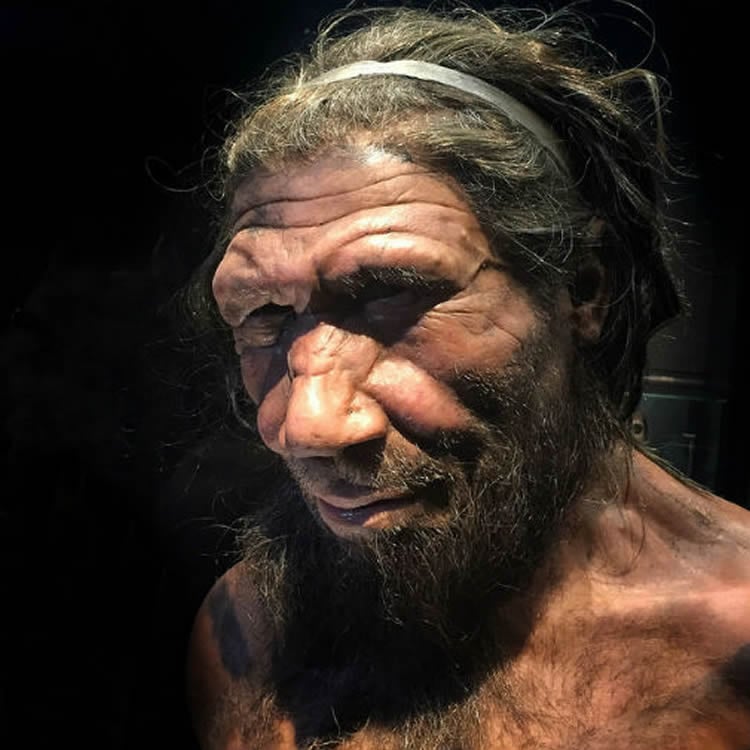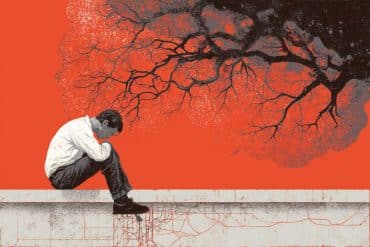Summary: Compassion and helping care for their injured may have been key to Neanderthal survival, researchers report.
Source: University of York.
They have an unwarranted image as brutish and uncaring, but new research has revealed just how knowledgeable and effective Neanderthal healthcare was.
The study, by the University of York, reveals that Neanderthal healthcare was uncalculated and highly effective – challenging our notions that they were brutish compared to modern humans.
The researchers argue that the care provided was widespread and should be seen as a “compassionate and knowledgeable response to injury and illness.”
Caring
It is well known that Neanderthals sometimes provided care for the injured, but new analysis by the team at York suggest they were genuinely caring of their peers, regardless of the level of illness or injury, rather than helping others out of self-interest.
Lead author, Dr Penny Spikins, senior lecturer in the Archaeology of Human Origin at the University of York, said: “Our findings suggest Neanderthals didn’t think in terms of whether others might repay their efforts, they just responded to their feelings about seeing their loved ones suffering.”
Most of the individuals archaeologists know about had a severe injury of some kind, with detailed pathologies highlighting a range of debilitating conditions and injuries.
In some cases the injuries occurred long before death and would have required monitoring, massage, fever management and hygiene care, the study suggests.
Analysis of a male aged around 25-40 at time of death revealed a catalogue of poor heath, including a degenerative disease of the spine and shoulders.
Evolution
His condition would have sapped his strength over the final 12 months of life and severely restricted his ability to contribute to the group.

Yet, the authors of the study argue he remained part of the group as his articulated remains were subsequently carefully buried.
Dr Spikins added: “We argue that the social significance of the broader pattern of healthcare has been overlooked and interpretations of a limited or calculated response to healthcare have been influenced by preconceptions of Neanderthals as being ‘different’ and even brutish. However, a detailed consideration of the evidence in its social and cultural context reveals a different picture.
“The very similarity of Neanderthal healthcare to that of later periods has important implications. We argue that organised, knowledgeable and caring healthcare is not unique to our species but rather has a long evolutionary history.”
Funding: The study was partially supported by the John Templeton Foundation.
Source: University of York
Publisher: Organized by NeuroscienceNews.com.
Image Source: NeuroscienceNews.com image is credited to Allan Henderson.
Original Research: Open access research in World Archaeology.
doi:10.1080/00438243.2018.1433060
[cbtabs][cbtab title=”MLA”]University of York “Compassion Helped Neanderthals Survive.” NeuroscienceNews. NeuroscienceNews, 14 March 2018.
<https://neurosciencenews.com/compassion-evolution-neanderthals-8632/>.[/cbtab][cbtab title=”APA”]University of York (2018, March 14). Compassion Helped Neanderthals Survive. NeuroscienceNews. Retrieved March 14, 2018 from https://neurosciencenews.com/compassion-evolution-neanderthals-8632/[/cbtab][cbtab title=”Chicago”]University of York “Compassion Helped Neanderthals Survive.” https://neurosciencenews.com/compassion-evolution-neanderthals-8632/ (accessed March 14, 2018).[/cbtab][/cbtabs]
Abstract
Calculated or caring? Neanderthal healthcare in social context
Explanations for patterns of healed trauma in Neanderthals have been a matter of debate for several decades. Despite widespread evidence for recovery from injuries or survival despite impairments, apparent evidence for healthcare is given limited attention. Moreover, interpretations of Neanderthals’ approach to injury and suffering sometimes assume a calculated or indifferent attitude to others. Here the authors review evidence for Neanderthal healthcare, drawing on a bioarchaeology of care approach and relating healthcare to other realms of Neanderthal social life. The authors argue that Neanderthal medical treatment and healthcare was widespread and part of a social context of strong pro-social bonds which was not distinctively different from healthcare seen in later contexts. They suggest that the time has come to accept Neanderthal healthcare as a compassionate and knowledgeable response to injury and illness, and to turn to other questions, such as cultural variation or the wider significance of healthcare in an evolutionary context.







